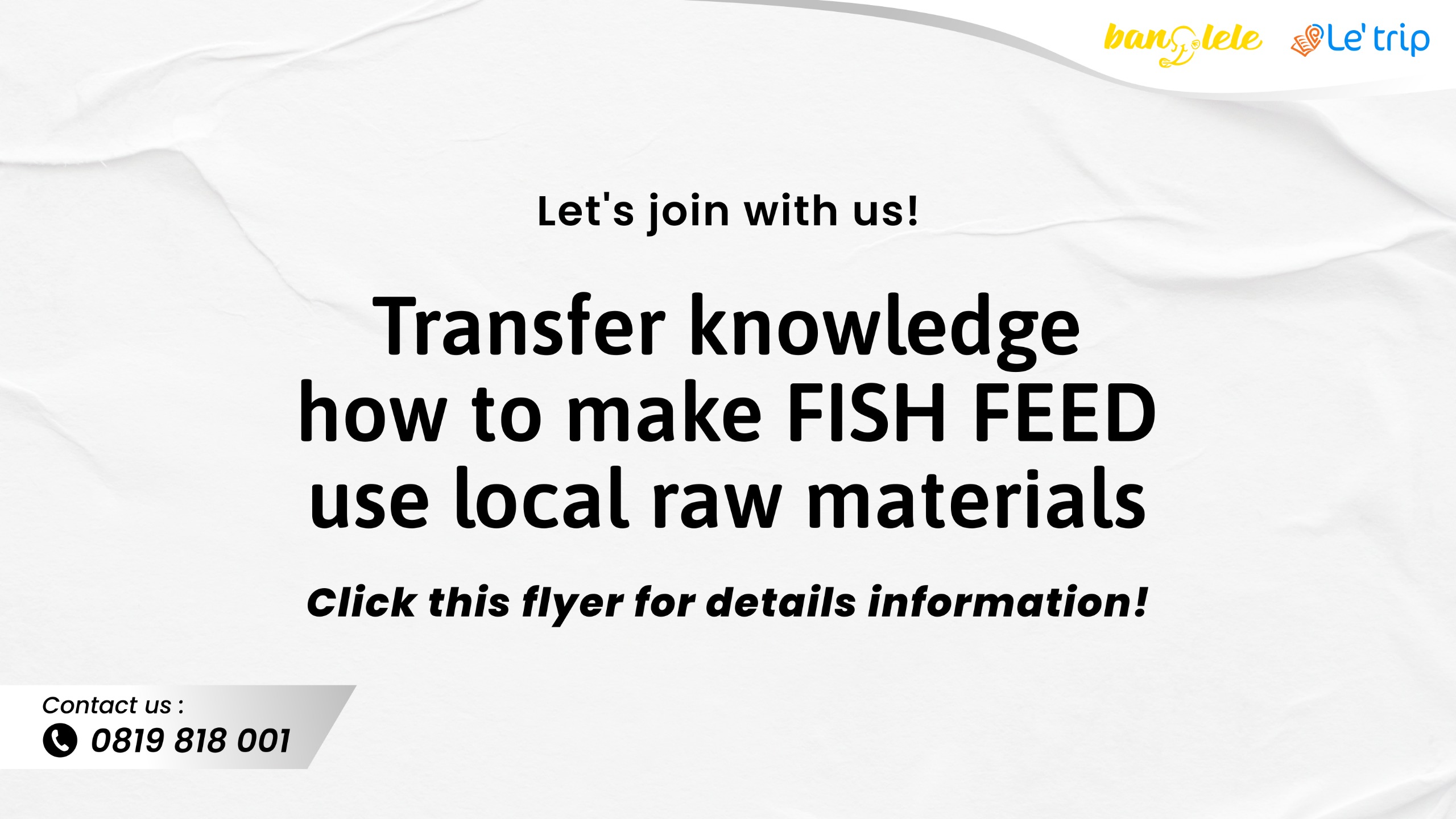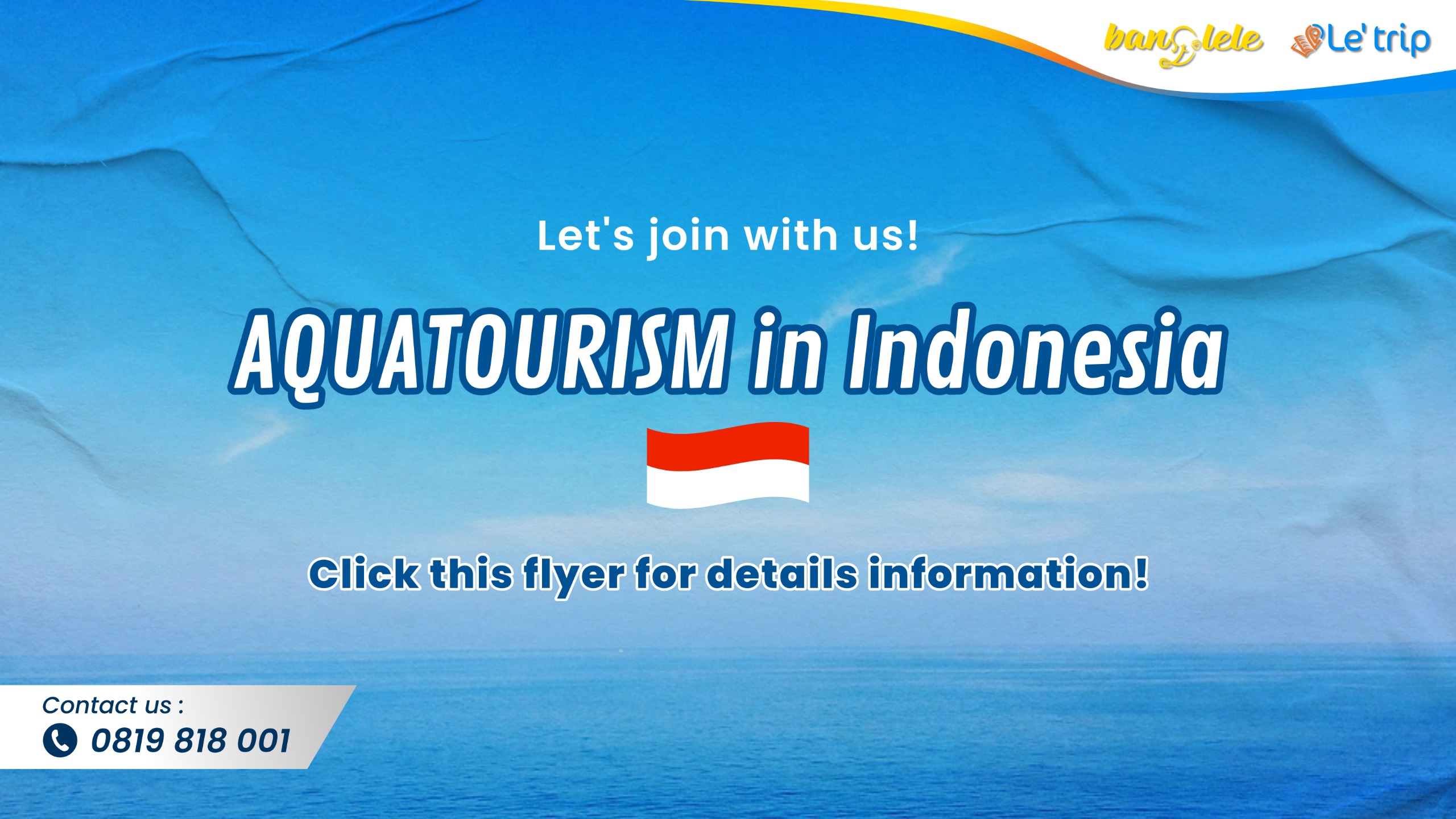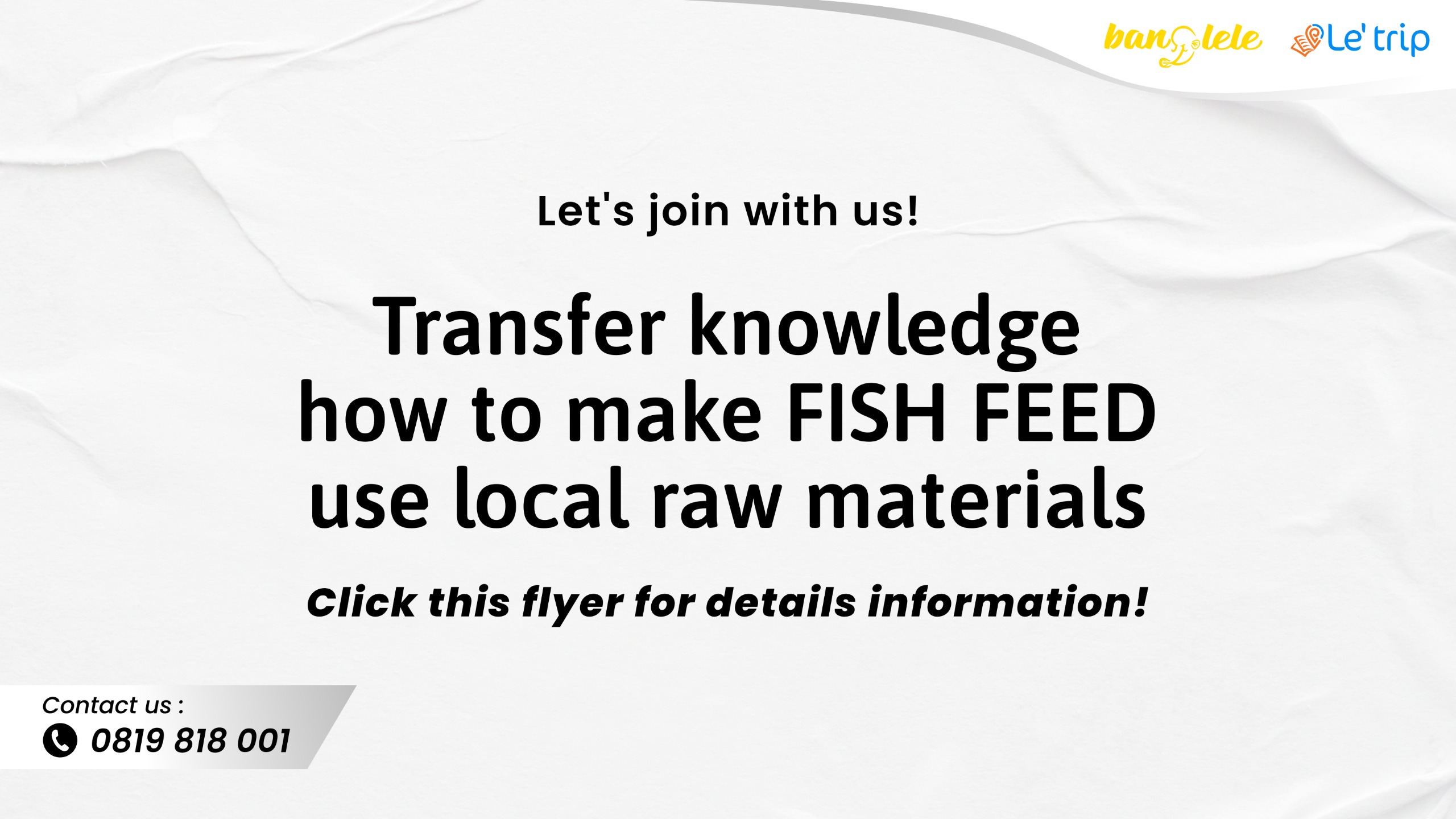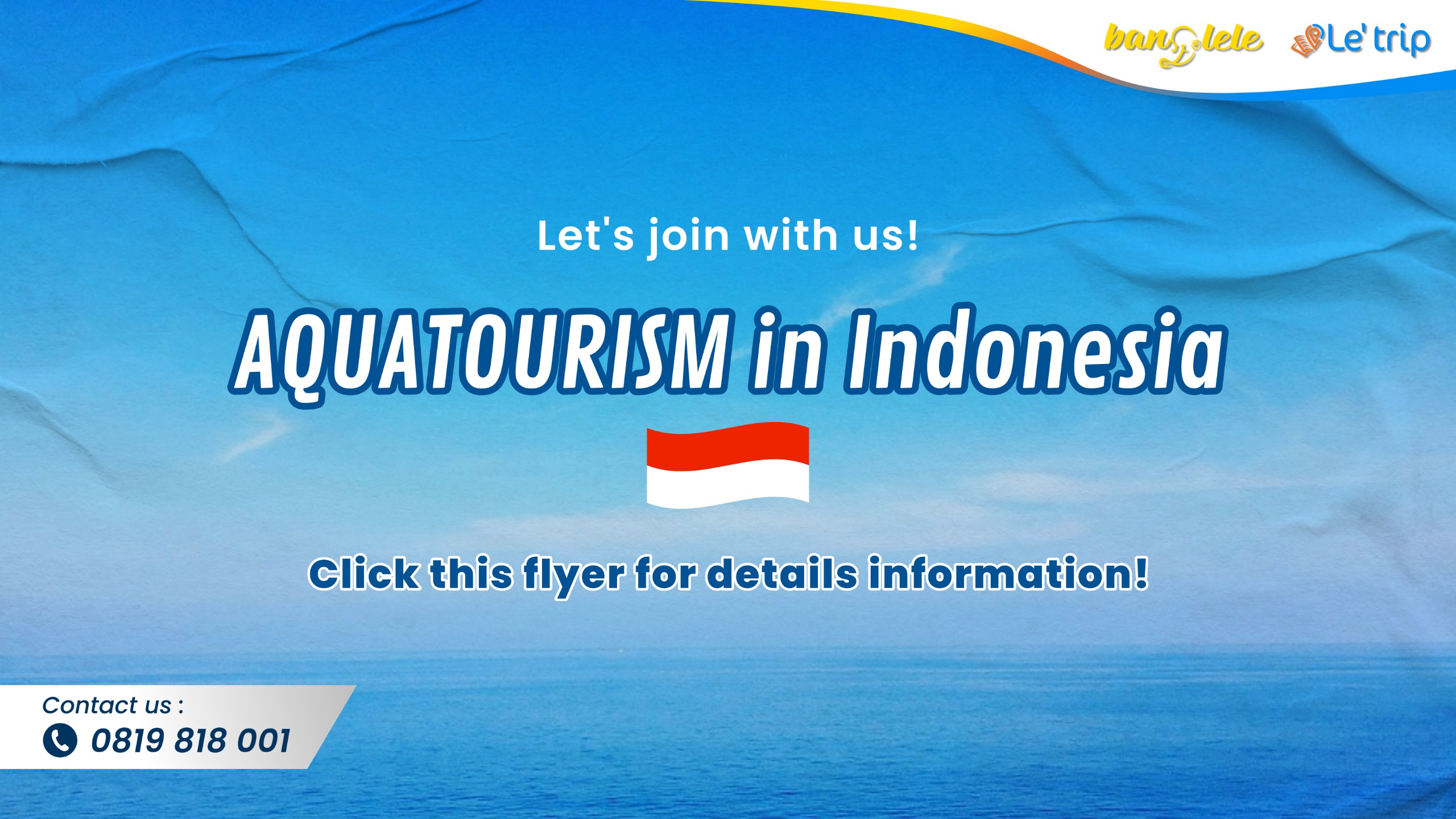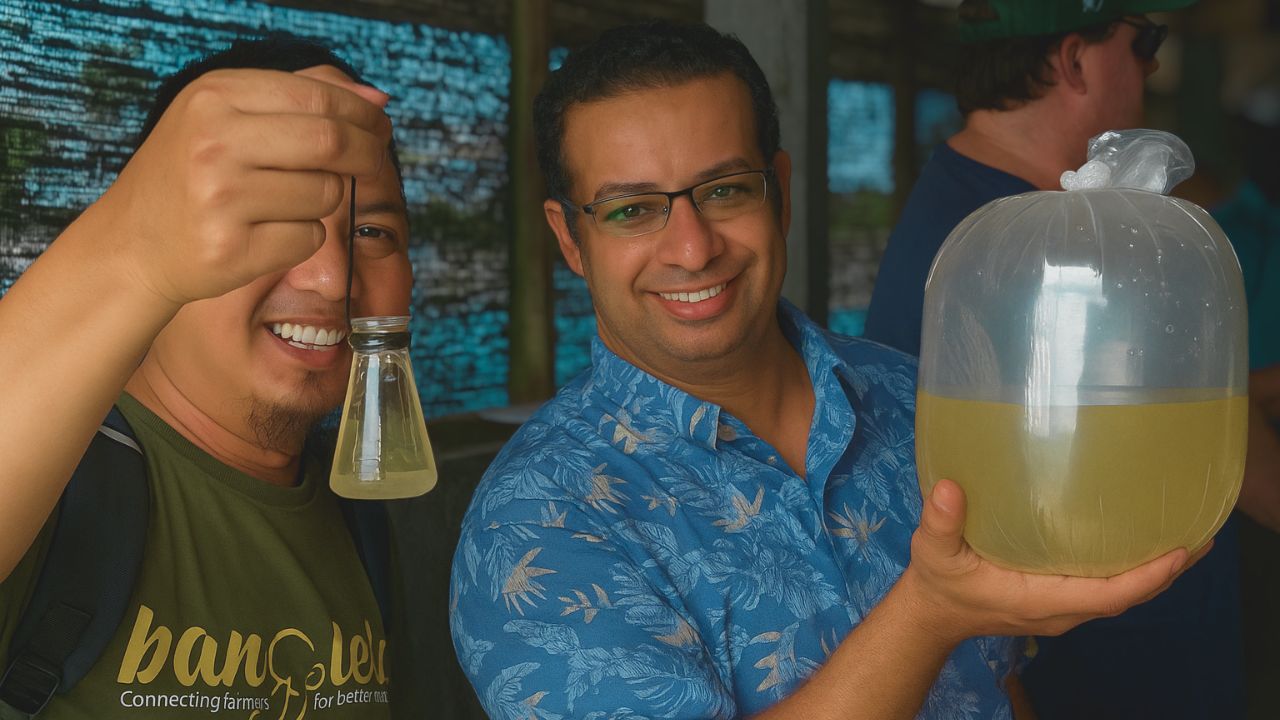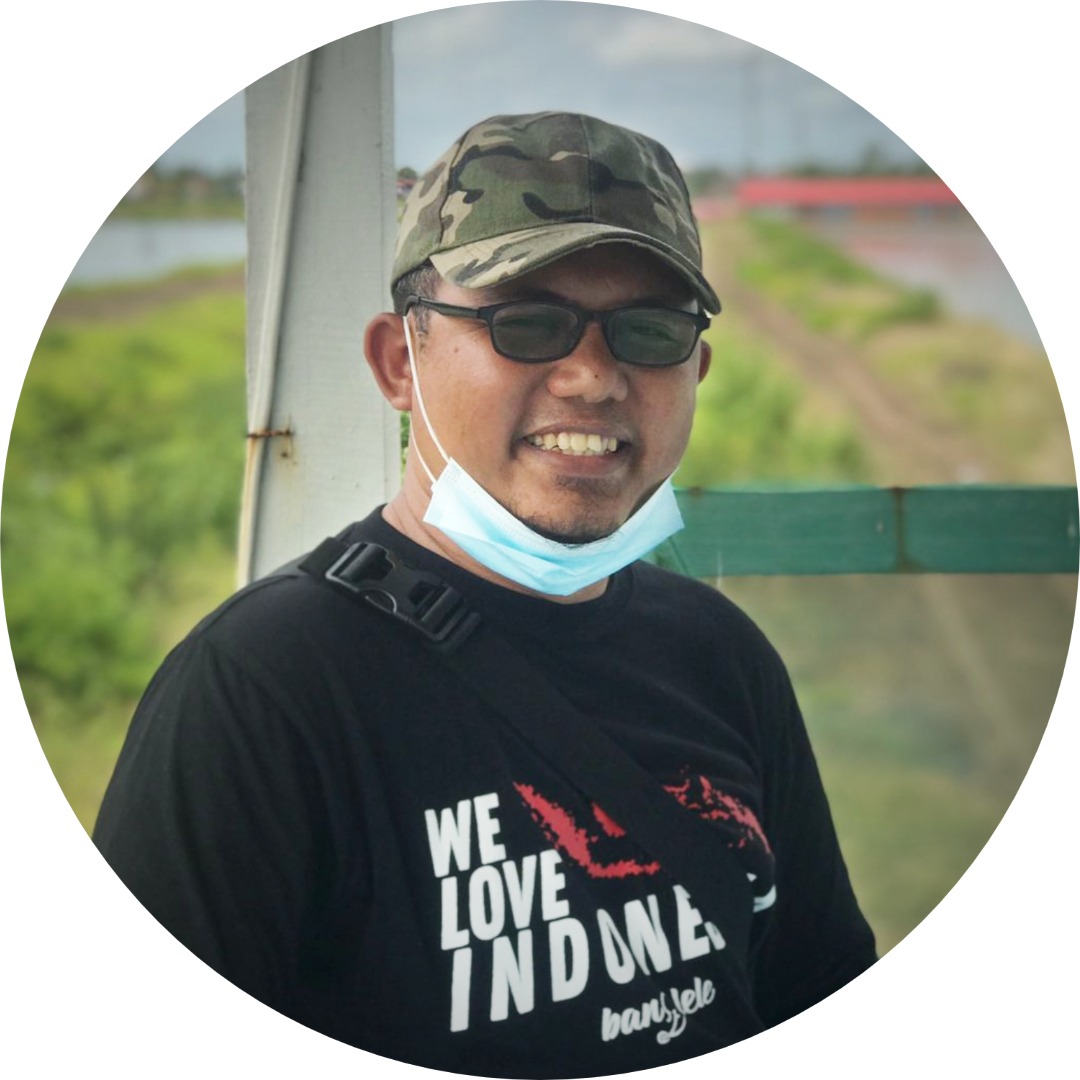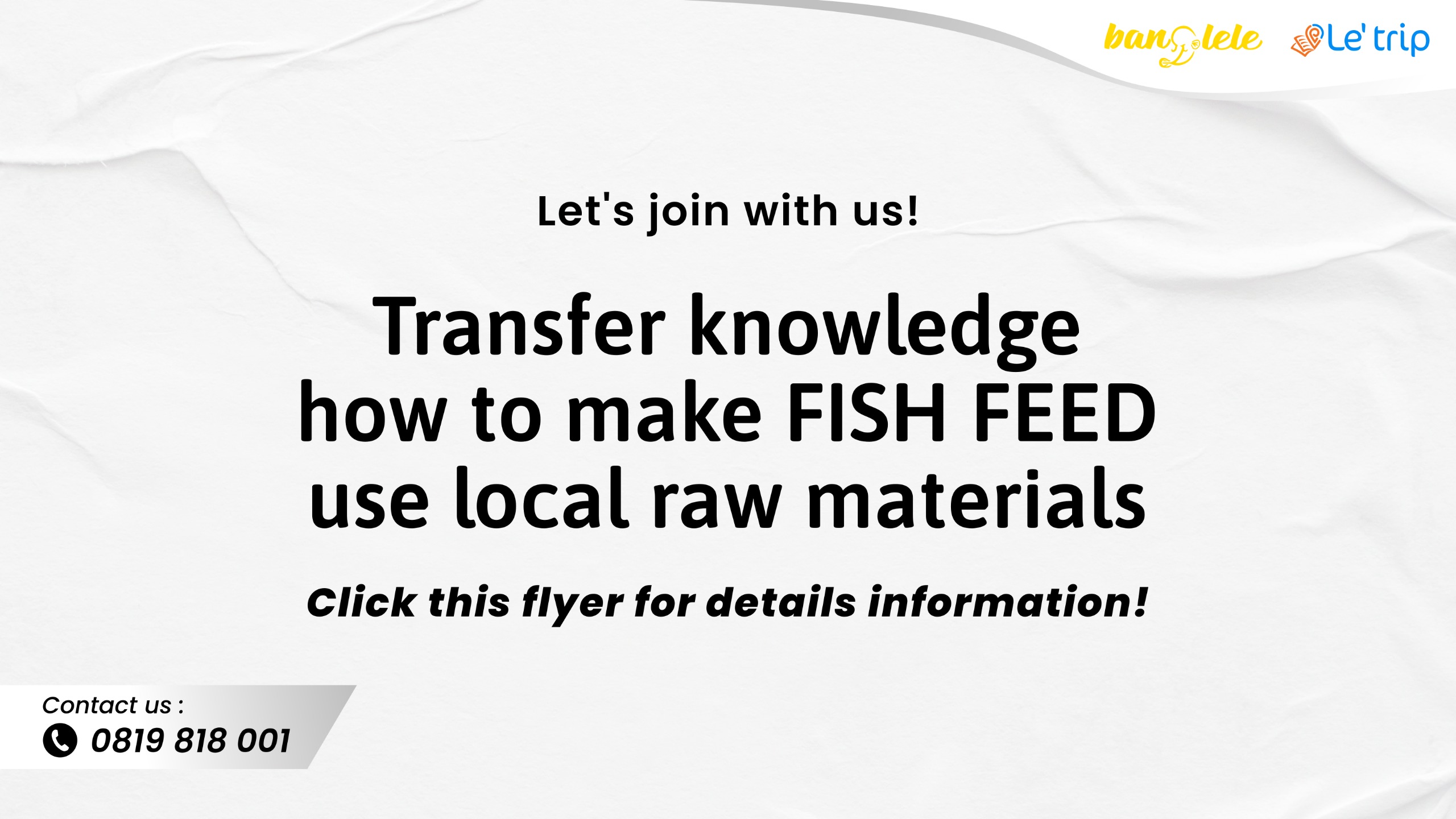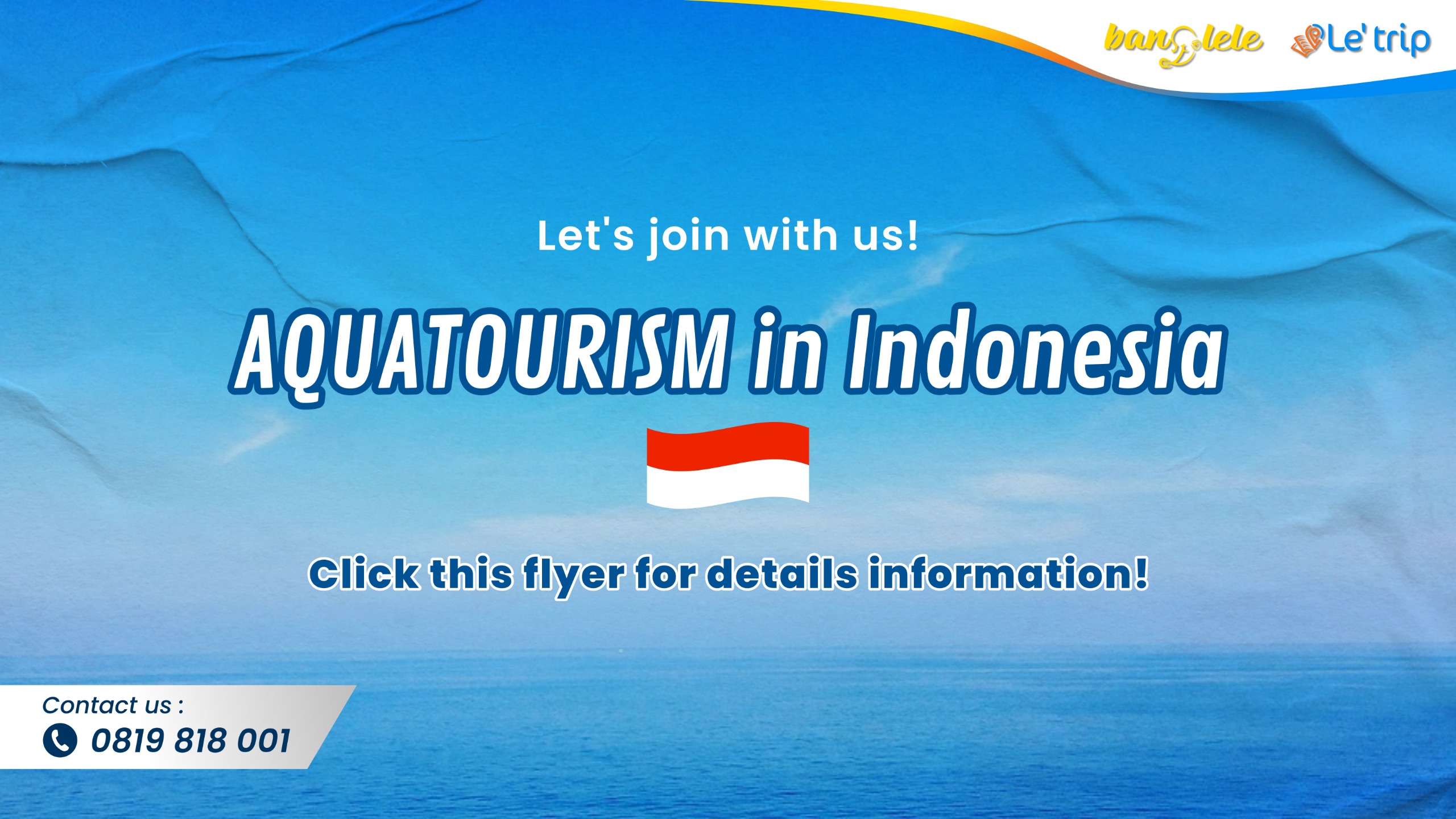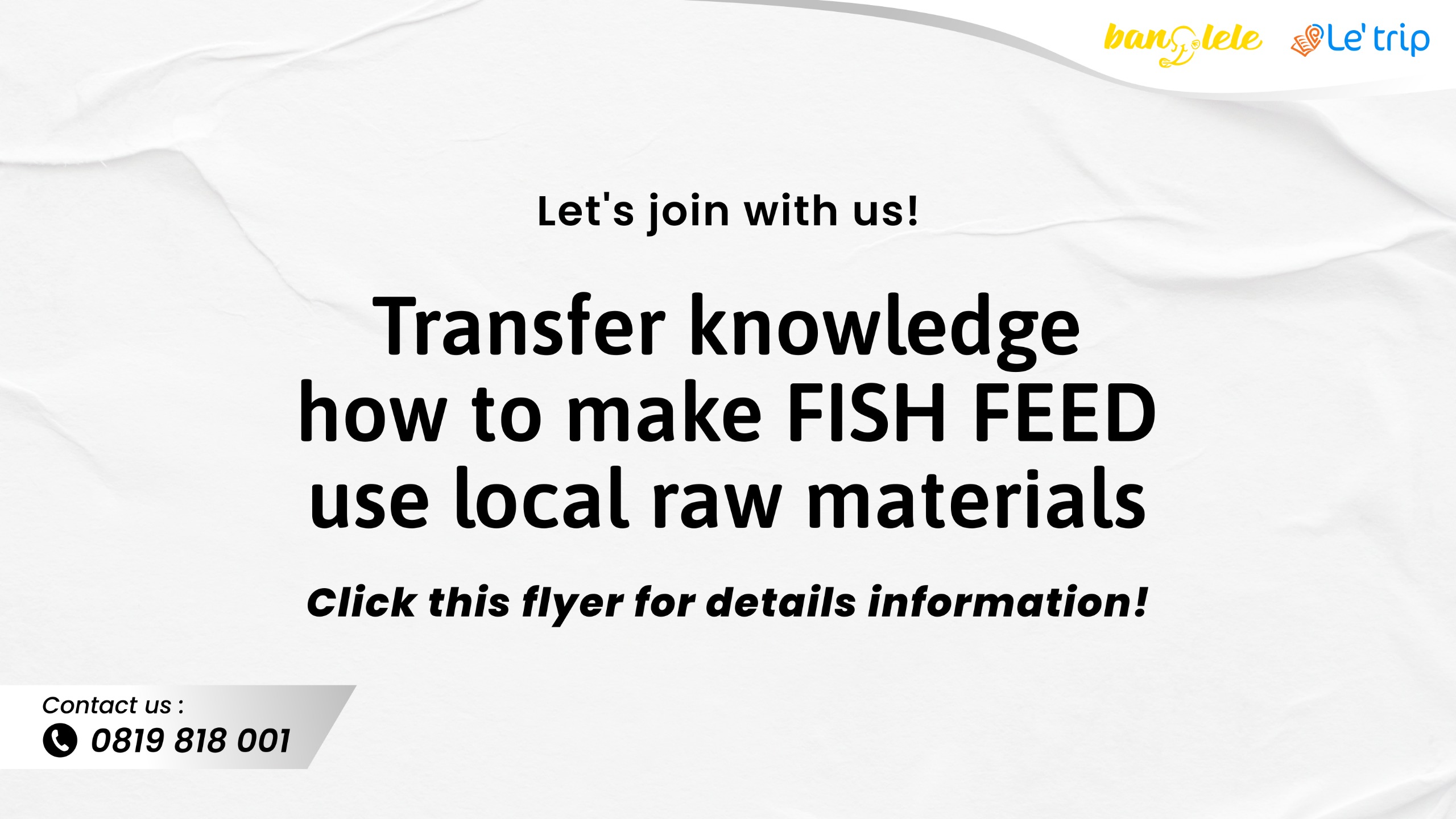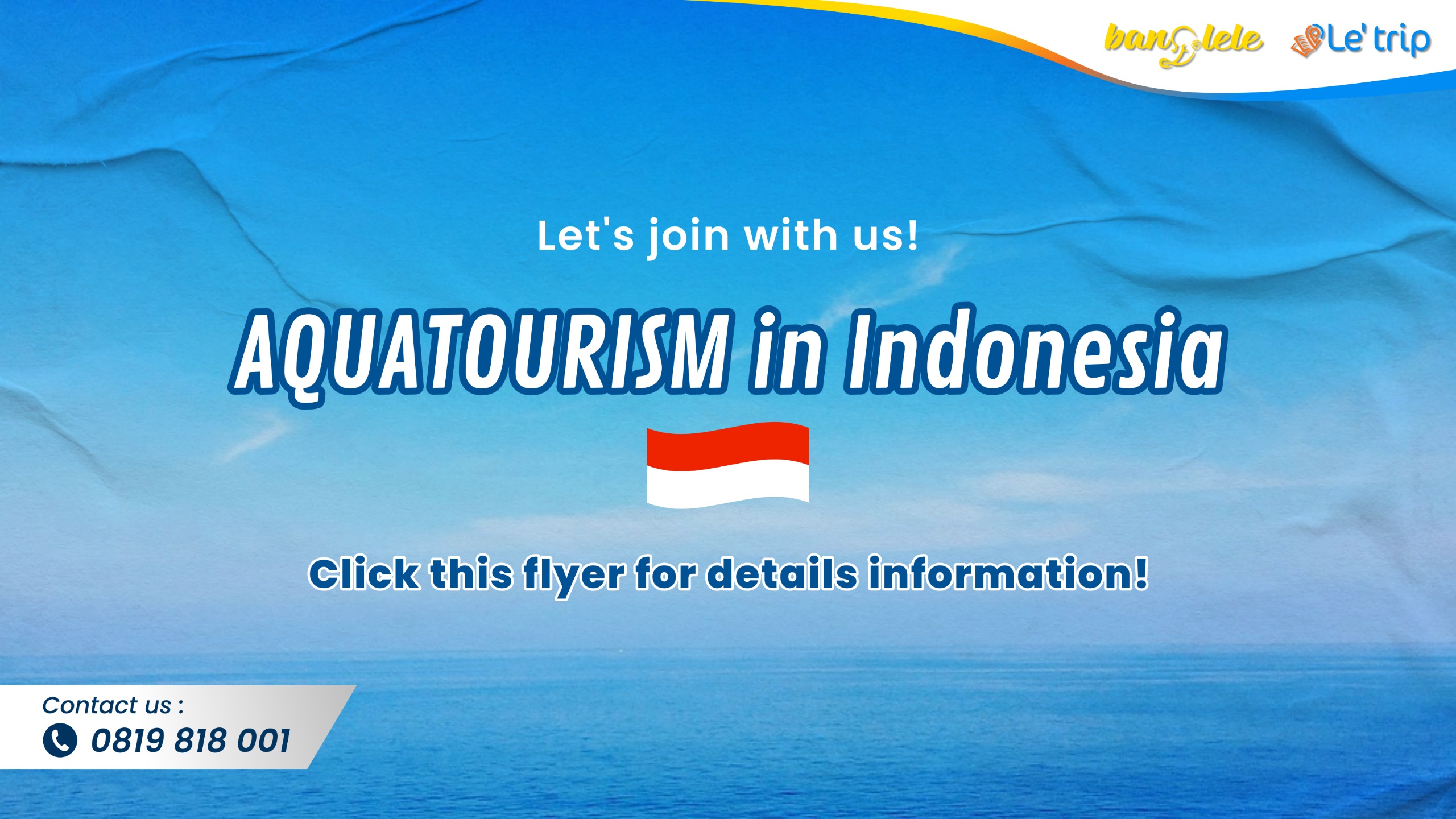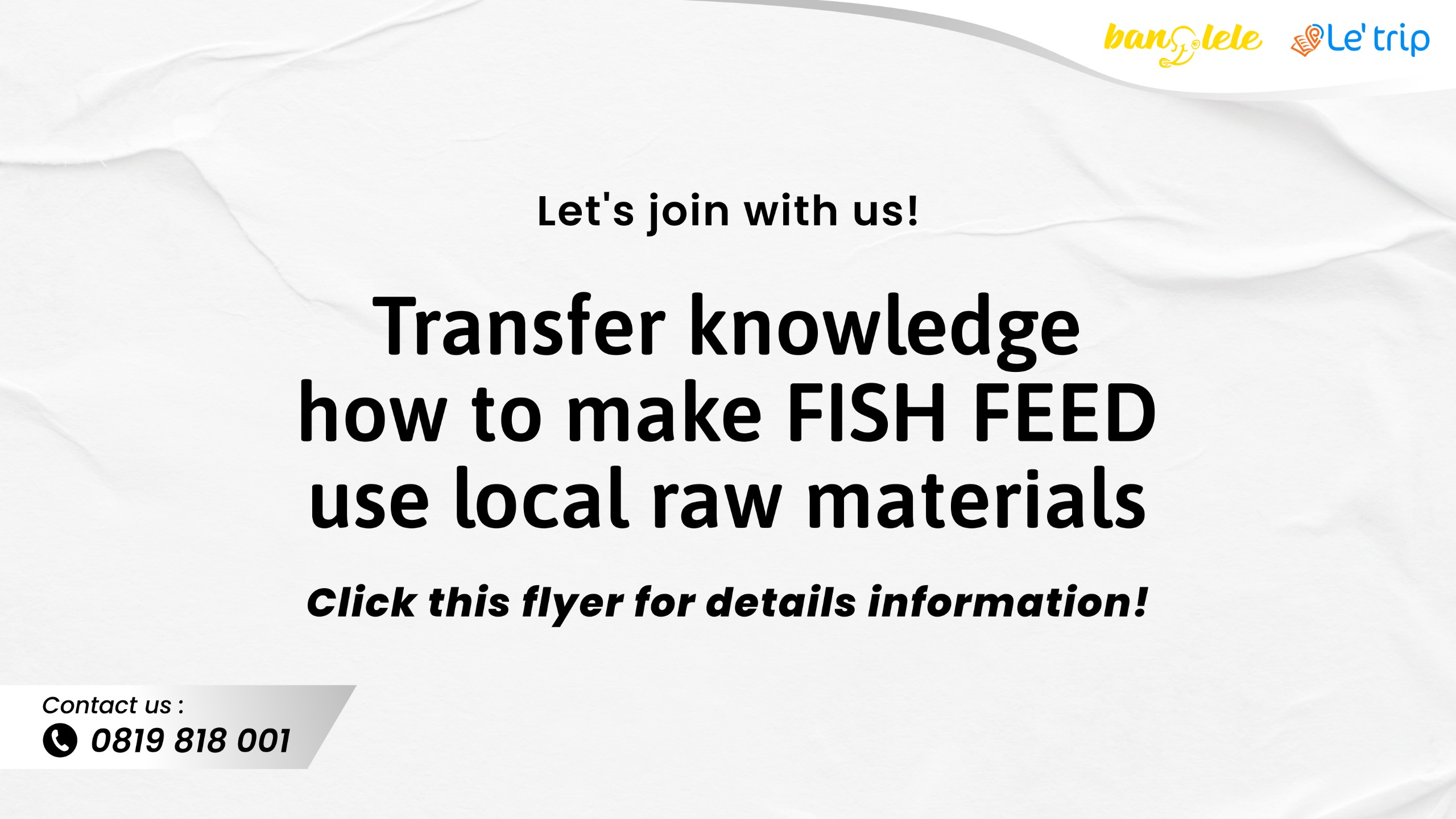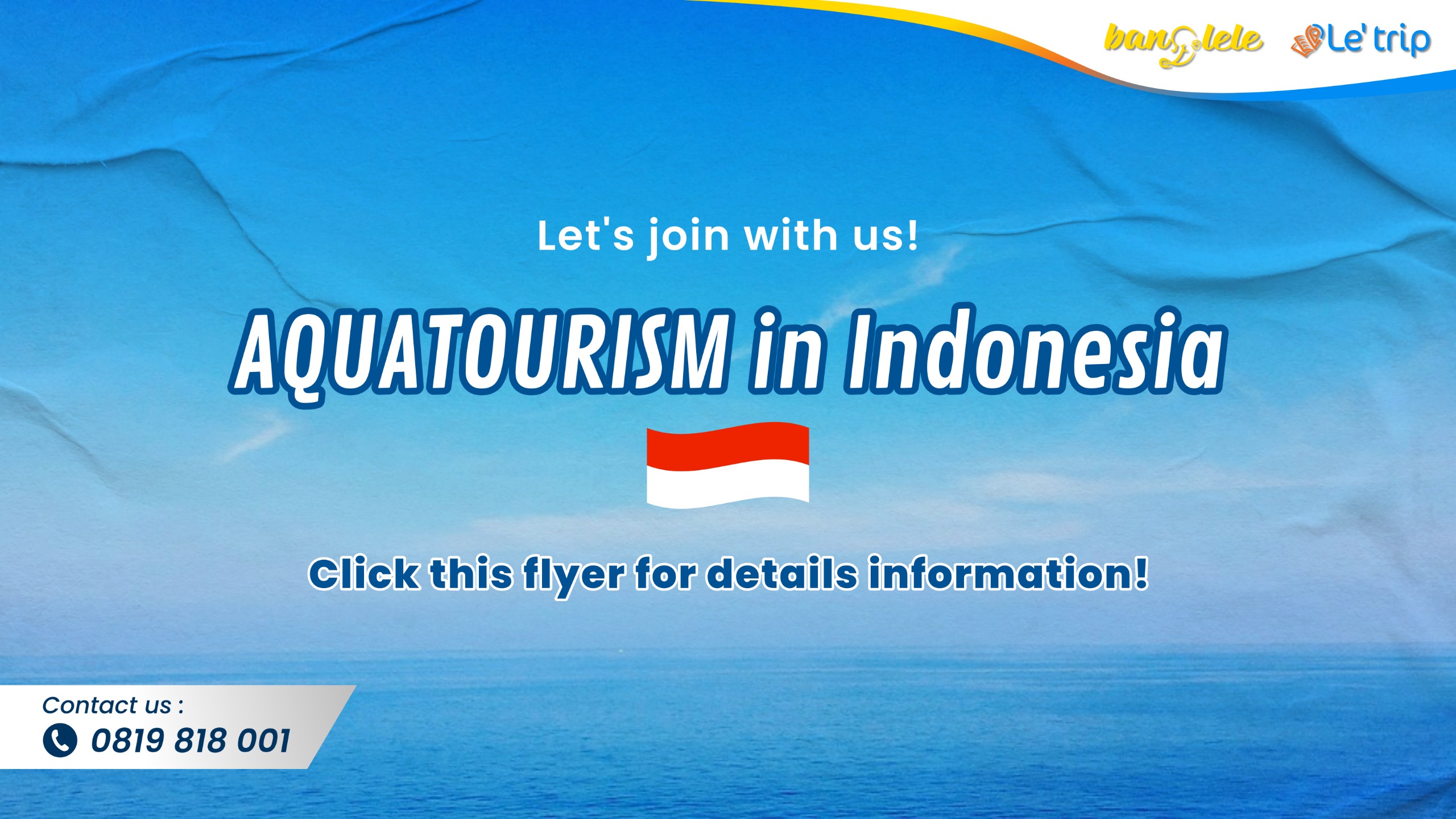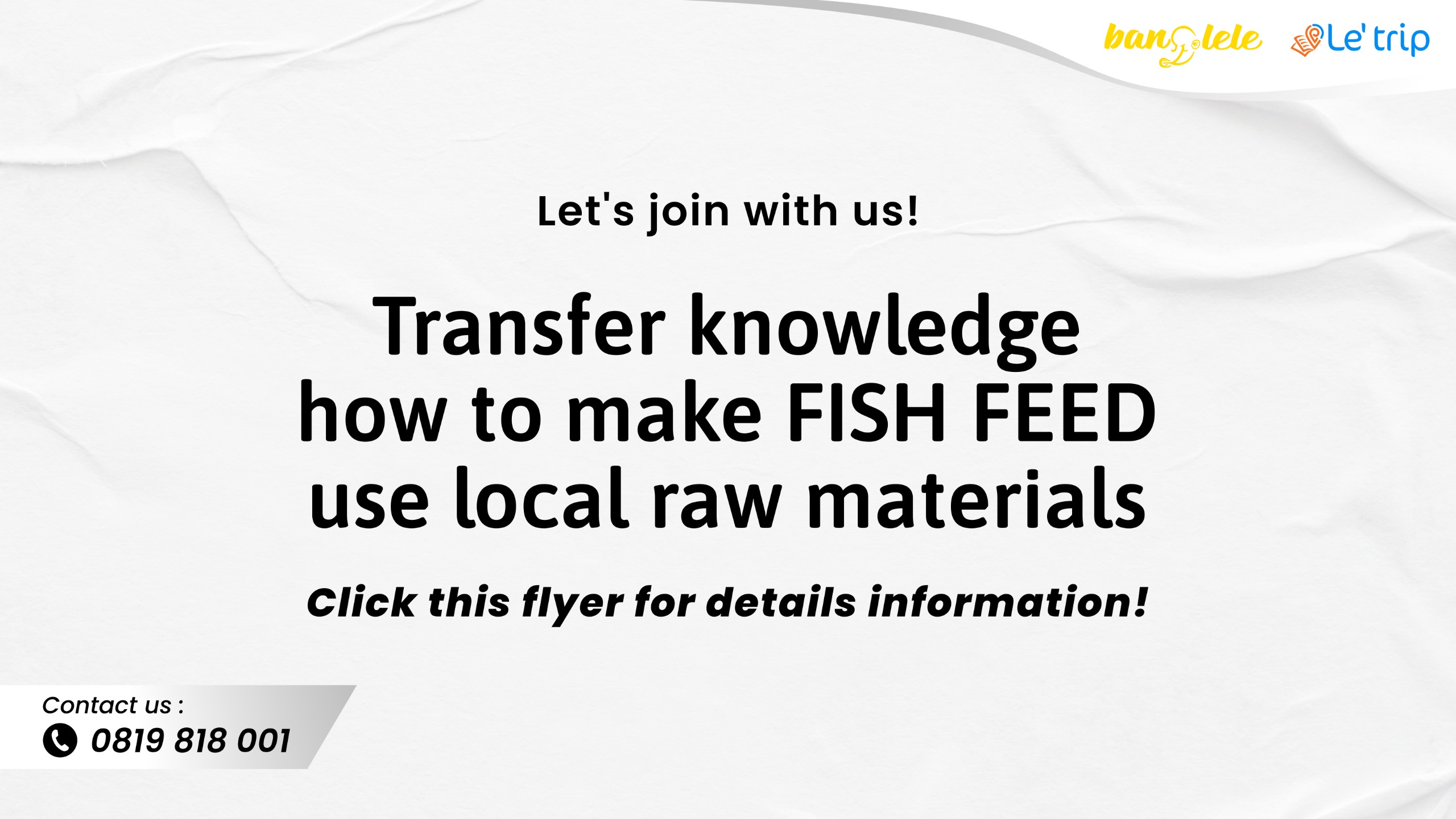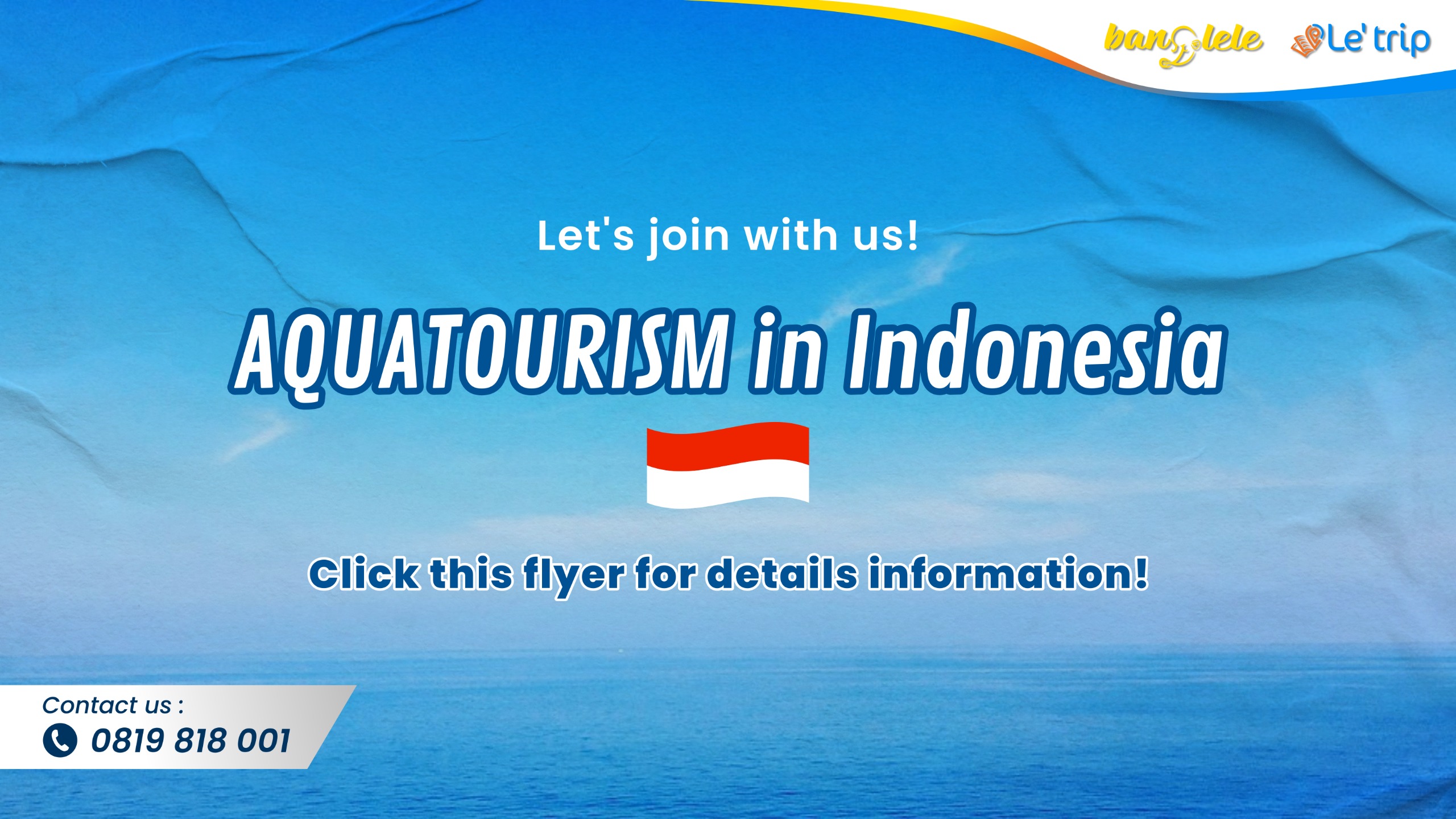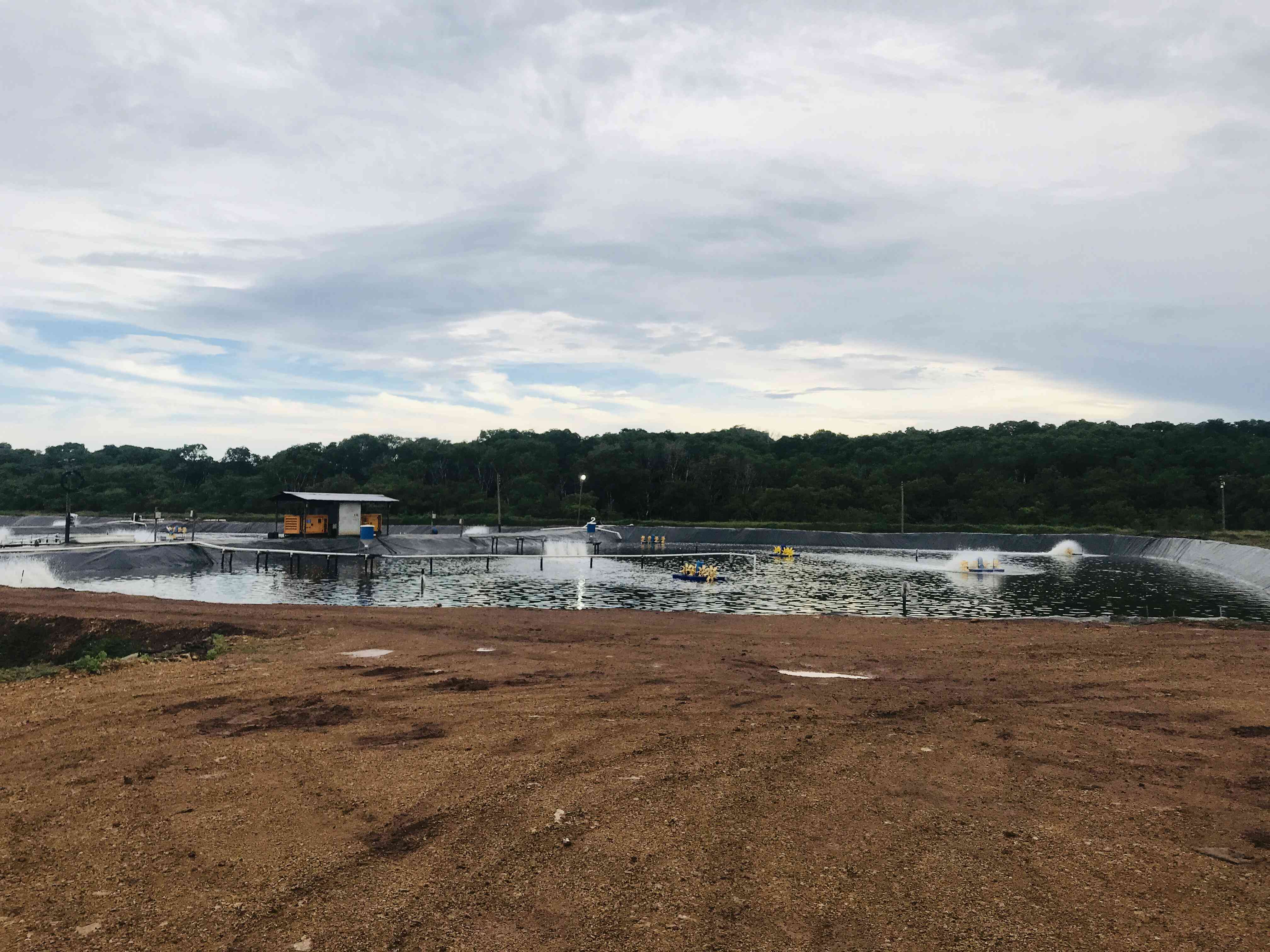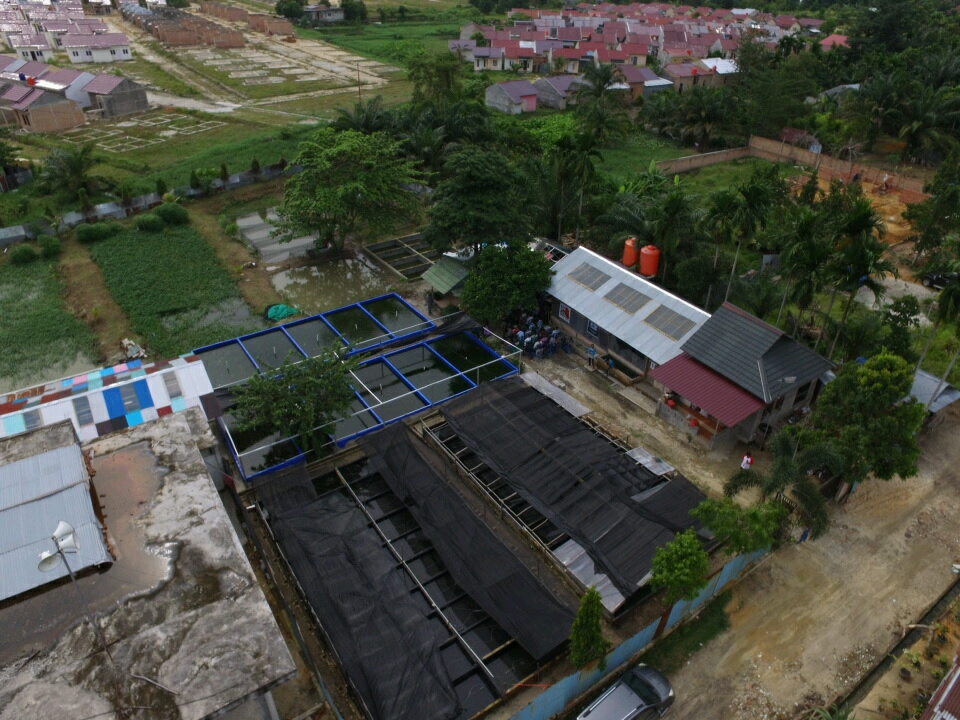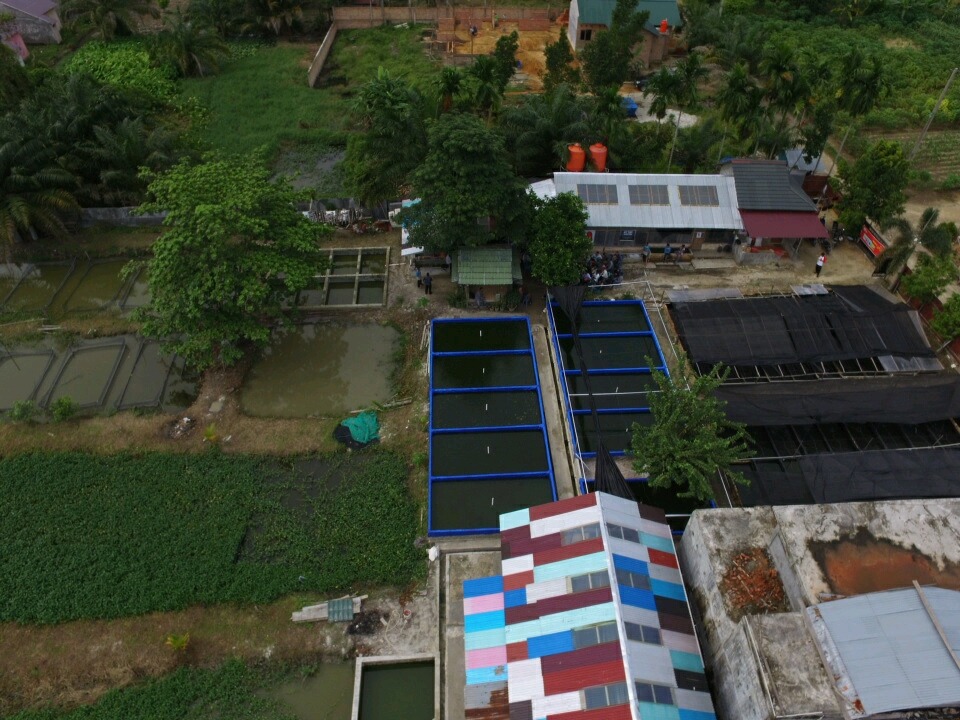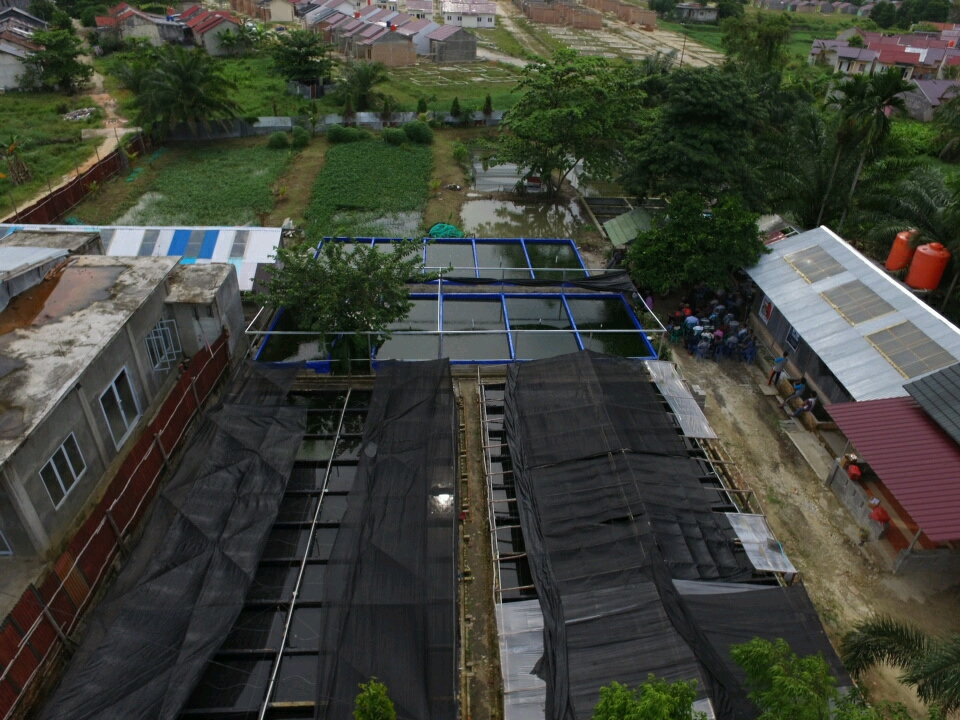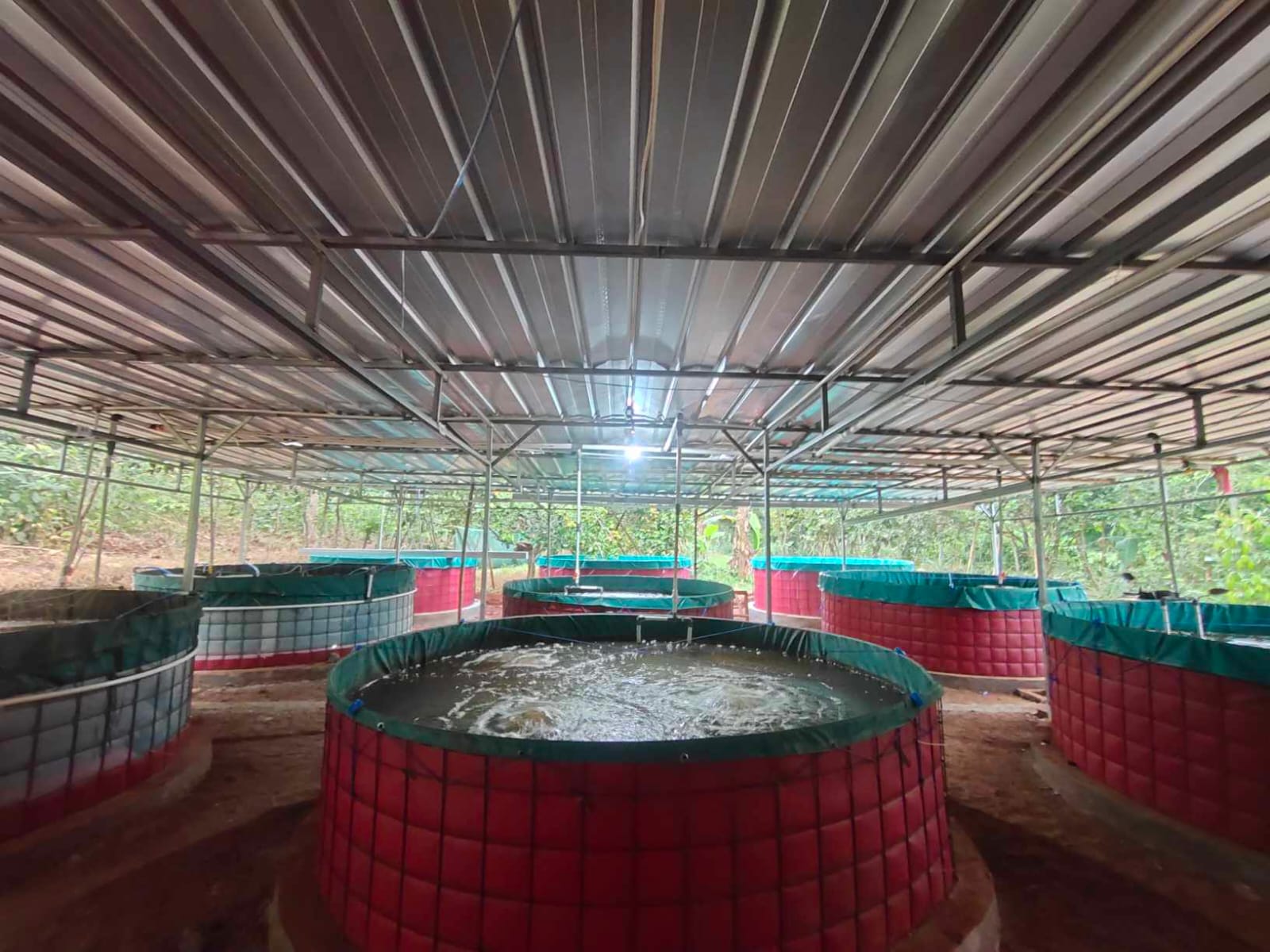The global concept of marine tourism is in the midst of a significant evolution. What was once an activity largely confined to the passive enjoyment of coastal landscapes is transforming into an immersive journey into the heart of a nation’s maritime food production systems. In this new paradigm, a novel approach known as Aquatourism is emerging, representing an innovative convergence of two sectors fundamental to the Indonesian economy: marine resources and tourism. Aquatourism can be defined as a specialized form of travel centered on aquatic ecosystems and activities, integrating field visits and direct, hands-on engagement to cultivate interest and provide education on the real-world applications of marine science and aquaculture.
The Aquatourism program proposed for Indonesia is designed to function as far more than a conventional tourism product. It is envisioned as a strategic platform for applied education, a vehicle for cultural diplomacy, and an accelerator for the nation's sustainable blue economy. The primary objective is to reshape the perception of aquaculture, elevating it from a mere commodity production sector to a valuable destination for knowledge and experience. This forward-thinking approach aligns perfectly with the shifting currents of global travel, particularly in the post-pandemic era. Modern travelers are increasingly turning away from standardized tourism models, seeking instead new experiences that are more authentic, educational, and impactful.
Aquatourism is precisely tailored to deliver this "new experience" by granting access to the world of fisheries cultivation—a domain that has long remained largely unexposed to the public eye. This report will explore the vast potential and the detailed implementation models of the Aquatourism program in Indonesia, illustrating how it stands to reposition the archipelago not just as a place of beauty, but as a global center for marine learning and innovation.
An archipelago of opportunity: Indonesia's case for global leadership
The foundation that makes Indonesia the ideal stage for the development of Aquatourism is a unique combination of immense natural wealth, profound cultural diversity, and a globally acclaimed gastronomic heritage. These assets, when woven together, create the potential for an educational tourism experience of unparalleled depth and memorability. The sheer scale and variety of Indonesia's aquatic landscapes provide an extraordinary starting capital for such a program. As the world’s largest archipelagic state, comprising approximately 17,466 islands, Indonesia possesses the second-longest coastline on the planet, stretching an impressive 54,716 kilometers (about 33,999 miles). This massive geography offers a virtually limitless array of aquatic ecosystems to explore, from coastal estuaries and volcanic crater lakes to the abyssal depths of the open ocean.
Adding a significant layer of value is Indonesia's strategic position at the heart of the Coral Triangle. This region, a majority of which lies within Indonesian waters, covers a mere 1.6 percent of the planet's oceans yet is home to an astonishing 76 percent of all known coral species and 37 percent of identified coral reef fish species. Furthermore, it serves as a critical spawning ground for six of the world's seven endangered sea turtle species. This biological preeminence makes the archipelago not just a visually stunning destination but also a giant natural laboratory for enthusiasts of marine biology.
Global recognition of Indonesia's maritime superiority is not anecdotal; it is substantiated by a consistent stream of international accolades. Readers of the UK-based DIVE Magazine have repeatedly voted Indonesia the "World's Best Scuba Diving Destination". More recently, the prestigious World Travel Awards named the nation "Asia's Leading Adventure Tourism Destination 2024". This is further reinforced by market data from the digital travel platform Agoda, whose 2025 Scuba Deals Survey revealed Indonesia as the most sought-after diving destination among Asian travelers. The convergence of these awards from different segments—specialist publications, the broader travel industry, and consumer preference surveys—indicates a deep and wide-ranging market appeal. This creates a powerful brand reputation that lends immediate credibility to a new, related concept like Aquatourism. It is not a launch from a standing start, but the next logical evolution for a recognized global leader.
In conventional tourism, these exceptional geographical and biodiversity assets are often treated as passive backdrops, with visitors acting as mere spectators. The Aquatourism program fundamentally alters this dynamic. Participants will not just gaze at the beauty of the coral reefs around the Gili Islands; they will learn about the conservation efforts underway at sites like the Belitung Marine Sanctuary. They will not simply enjoy a pristine beach, but will come to understand how the community of Seriwe Village in Lombok has built a livelihood through the traditional cultivation of seaweed. This shift from passive observation to active engagement is the core of the Aquatourism value proposition.
Seaweed cultivation remains a favorite for some communities living on the southern coast of East Lombok, particularly in Seriwe Village, Jerowaru District: KKP RI
Gastronomic diplomacy: a taste of the archipelago's waters
Beyond the archipelago’s natural endowments, it is the human and cultural dimensions that can most profoundly enrich the Aquatourism experience. With more than 600 distinct ethnic groups and 1,400 indigenous languages, each destination offers a unique socio-cultural context, providing new layers of understanding about the intricate relationship between communities and the sea. This strength is a central theme in the national "Wonderful Indonesia" tourism campaign, which highlights four key pillars: nature, culture, people, and food.
Gastronomy, in particular, serves as the most effective and accessible bridge connecting the world of aquaculture to the experience of tourism. The global recognition of Indonesian cuisine is exceptionally strong. In a 2017 readers' poll by CNN, Rendang and Nasi Goreng were voted the world's number one and two best foods, respectively. More recently, the TasteAtlas Awards for 2024/2025 ranked Indonesian cuisine as the 7th best in the world, while Jakarta was crowned the best culinary city in ASEAN and 16th globally. The inclusion of other cities like Bandung, Surabaya, Padang, Solo, and Yogyakarta in the world's top 100 further demonstrates the nation's culinary depth.
Crucially, many of these celebrated dishes are rooted in fisheries products. Siomay, a ubiquitous Indonesian steamed fish dumpling, was named the number one best-rated dumpling in the world by TasteAtlas, surpassing globally recognized counterparts like Japanese gyoza and Chinese xiao long bao. This dish, derived from Chinese shumai, is typically made from fish paste—often Spanish mackerel—and served with steamed vegetables and a rich peanut sauce. Similarly,
Batagor, a fried variation of siomay from West Java, was ranked as the second-best snack globally. The international success of these humble, everyday street foods reveals a powerful narrative tool. It reframes the story of aquaculture away from an exclusive focus on high-value export commodities like shrimp or lobster and grounds it in authentic, popular culture. This makes the Aquatourism story more relatable and accessible, proving that Indonesian cuisine is not merely about flavor but is one of the most potent entry points for introducing the complexities of the aquaculture supply chain to a diverse global audience. A single, delicious dish can initiate a meaningful conversation about sustainable fisheries, species diversity, and the resilience of local economies.
The experiential blueprint: a new model for applied learning
The Aquatourism program model is designed as an immersive learning ecosystem where theory and practice converge through a structured collaboration between academics, industry professionals, and local communities. This synergy ensures that every component of the program is not only educational but also directly relevant to the contemporary challenges and opportunities within the global aquaculture sector.
The core of the program's learning model is a carefully curated combination of field visits to diverse cultivation sites, hands-on workshops that encourage active participation, and deep cultural immersion. The curriculum is intentionally designed for intensive learning, moving participants beyond the role of passive observers to that of active contributors in the production process. For instance, participants might engage directly in formulating specialized fish feed, assist in conducting a partial harvest of a fishpond, or learn to process raw aquatic products into value-added goods like fish nuggets or traditional smoked fish.
This hands-on approach directly fulfills the program's two primary objectives: engagement and education. The benefits for participants are concrete and immediately applicable. They acquire not only theoretical knowledge but also develop practical technical skills in critical areas such as hatchery management, feed formulation, fish health diagnostics, and post-harvest processing techniques. This direct, practical experience serves to significantly strengthen their professional competencies and enhance their career prospects within the broader fields of marine science and fisheries.
A nation's aquaculture on display: a journey from tradition to technology
The Aquatourism program offers a unique journey that encapsulates the multifaceted nature of Indonesia's aquaculture industry. From traditional ponds managed with generations of local wisdom to facilities deploying the latest in technological innovation, each destination is carefully selected to present the full spectrum of national aquaculture practices. Participants are invited to witness firsthand how the industry evolves, from community-scale operations to large industrial enterprises, and how local knowledge seamlessly integrates with cutting-edge advancements.
In Bali, participants will encounter the modern, export-oriented face of Indonesian aquaculture. Sites like CV. Putra Bahari showcases large-scale hatchery technology for milkfish (Chanos chanos), while a visit to Atlas Pearls reveals the intricate process of producing high-value South Sea pearls. The numerous floating net cages (keramba jaring apung or KJA) dotting Bali's coastal waters serve as prime examples of intensive cultivation technology used to maintain the quality and productivity of premium species like lobster and grouper.
Beyond Bali, the islands of Lombok and Bangka Belitung present the vital social and ecological dimensions of aquaculture. In Seriwe Village, Lombok, participants can observe community-based seaweed farming, a practice that sustains the livelihoods of countless coastal families. Meanwhile, the innovative "Crab Apartments" in Bangka Belitung demonstrate how a simple yet creative approach can transform capture fisheries into a sustainable village-level enterprise, all while helping to preserve the critical mangrove ecosystems that line the coast.
Harvest from crab cultivation using the Crab Box Apartment system in West Kurau Village, Central Bangka Regency: Luhkan Bangka Tengah/Mimin Suparmin
Java, in turn, stands as a stage for technological innovation and the application of the circular economy. The Vertical Crab House system developed by Crab House Aquatic offers a smart solution to the persistent challenges of cannibalism and stress in crab farming. Equally compelling is the "Bio Cycle Farming" concept pioneered by RAJ Organik, which integrates the cultivation of eels, earthworms, and organic plants into a closed-loop ecosystem, creating a highly efficient and environmentally friendly model of integrated agriculture.
Finally, destinations in Riau and West Sumatra highlight the power of integrated value chains. The journey can begin with small-scale pangasius (patin) hatchery and grow-out operations like those at Graha Pratama Fish in Riau, move to the utilization of the volcanic crater Lake Maninjau for tilapia farming, and culminate at Si Pujuk Farm, where participants see how raw products are processed into value-added smoked fish. This rich tapestry, stretching from local traditions to technological frontiers, is what establishes Indonesia as an exceptionally promising destination for a global Aquatourism program, offering a wealth of learning, inspiration, and opportunities for international collaboration.
Proof of concept: the success of the Banglele Indonesia initiative
The Aquatourism concept in Indonesia is not merely a theoretical proposal; it is a proven and replicable model, successfully implemented by the aquaculture firm Banglele Indonesia through international collaborations in 2025. This initiative's success demonstrates that a structured program combining education, technical practice, and cultural exchange is not only viable but highly effective. The story of Banglele Indonesia itself adds a powerful human-interest dimension, born from resilience in the face of an environmental crisis. The company was founded during the severe haze disaster that struck Riau Province in 2015. Amidst the crisis, its founders launched an initiative to market smoked catfish under the brand "Lele Kabut Asap" (Smoked Haze Catfish), turning adversity into an entrepreneurial opportunity that would eventually pioneer a new form of educational tourism.
The first of these Aquatourism programs took place in Bali in May 2025, in partnership with Roger Williams University from the United States. Over 15 days, from May 17 to 31, participants undertook an intensive study tour that provided direct experience at a variety of aquaculture sites, including shrimp, milkfish (Chanos chanos), lobster, and seaweed farms. The program's scope extended beyond technical aspects, enriched by visits to marine conservation sites and iconic Balinese cultural landmarks. This holistic approach provided participants with a comprehensive understanding of the intricate links between modern aquaculture, the local environment, and Bali's unique maritime culture.
In June 2025, Banglele Indonesia organized a second program with a different scale and focus, this time hosting the CaPFish team from Cambodia. Held in Riau and West Sumatra, this eight-day program (June 1–8) was designed for capacity building, aiming to deepen the participants' understanding of Indonesia's aquaculture value chain. The curriculum focused on key areas such as pangasius breeding technology, tilapia cultivation in floating net cages, shrimp farm management, and the application of integrated value chain models that support both productivity and sustainability. The success of this second program carries a significant implication: it positions Indonesia not just as a destination for Aquatourism but as a potential exporter of aquaculture knowledge and training to other developing nations. This elevates the initiative from a tourism product to a platform for international development and South-South cooperation, showcasing Indonesia as a regional leader in the blue economy.
The CaPFish team from Cambodia visited a tilapia cultivation floating net cage in Lake Maninjau: Banglele Indonesia
The collaborative ecosystem: a synergy of science, industry, and community
The foundational strength of the Aquatourism programs pioneered by Banglele Indonesia lies in a robust pillar of collaboration among key stakeholders. This synergy, which links academia, industry, and local communities, not only ensures the academic credibility of the curriculum but also guarantees its direct relevance to real-world industry needs. As a result, every aspect of the program is designed to transform an educational visit into a comprehensive and meaningful learning experience.
A clear manifestation of this collaborative strength is the direct involvement of leading Indonesian fisheries experts, such as Dr. Romi Novriadi. His participation lends significant intellectual weight to the program. Dr. Novriadi is an associate professor at the Politeknik Ahli Usaha Perikanan (AUP) Jakarta, a state-run polytechnic under the Ministry of Marine Affairs and Fisheries. With over 35 peer-reviewed scientific publications, an active role as Secretary of the Masyarakat Akuakultur Indonesia (MAI - Indonesian Aquaculture Society), and more than 15 years of experience partnering with the industry, his presence ensures that participants receive insights that are both current and deeply relevant to the latest developments in aquaculture.
Furthermore, collaborations with local universities solidify the program's academic foundation. The Faculty of Marine Science and Fisheries at Universitas Udayana (Unud) in Bali, for example, serves as a strategic partner. This partnership opens avenues for joint seminars, provides access to university laboratory facilities, and creates the potential for academic credit transfers for participating university students. This deep integration with high-caliber local institutions transforms the program's nature. It is not a tour organized by a travel company but rather a "mobile academic conference" or "field school" curated by the nation's leading experts. This structure provides the ultimate guarantee of quality and intellectual rigor, making it a highly attractive proposition for universities and research institutions worldwide seeking vetted international partnerships.
The program also integrates Indonesian university students as active participants, serving as assistants, guides, and counterparts in group projects. This fosters a dynamic, two-way cultural exchange. International participants gain authentic local perspectives and insights, while Indonesian students receive valuable international exposure and an opportunity to hone their cross-cultural communication skills. This collaborative ecosystem is arguably the program's most critical strategic asset, elevating it from tourism to the realm of international education and solidifying Indonesia's role as a global hub for applied marine science.
